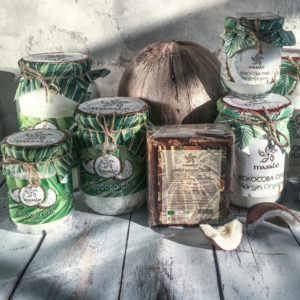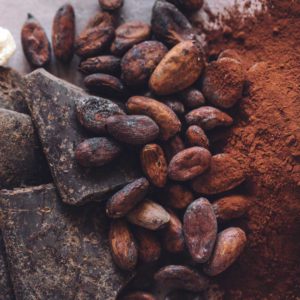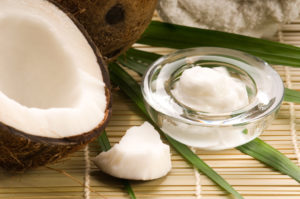The third, final, article with information on the labeling of coconut oil, and today we talk about:
ORGANIC COCONUT OIL
NATURAL COCONUT OIL
HOMEMADE / TRADITIONAL / VILLAGE OIL
FRACTIONATED COCONUT OIL
HYDROGENATED COCONUT OIL
ORGANIC COCONUT OIL
In ordinary practice, coconut farming is “naturally” organic. Coconuts differ from other crops in that depend on industrial agriculture with intensive production and total using chemical fertilizers, pesticides and herbicides. In coconut culture small farms dominate – an average of 3 hectares per farmer. The result of this difference is a small number of farmers using chemical fertilizers.
Agencies issuing certificates and appropriating oils the classification of “organic”, it is not very clear whether it is manufactured oil from copra or from milk, what level of purification it is or how exactly it is pressed. To they also allow the use of solvents, according to the rules certification.
Essentially, organic coconut oil is certified if it is manufactured according to the guidelines set by the organizations certification. Oil may be made from copra and refined provided that used solvents, fertilizers and pesticides are of organic origin and approved by the certification organization.
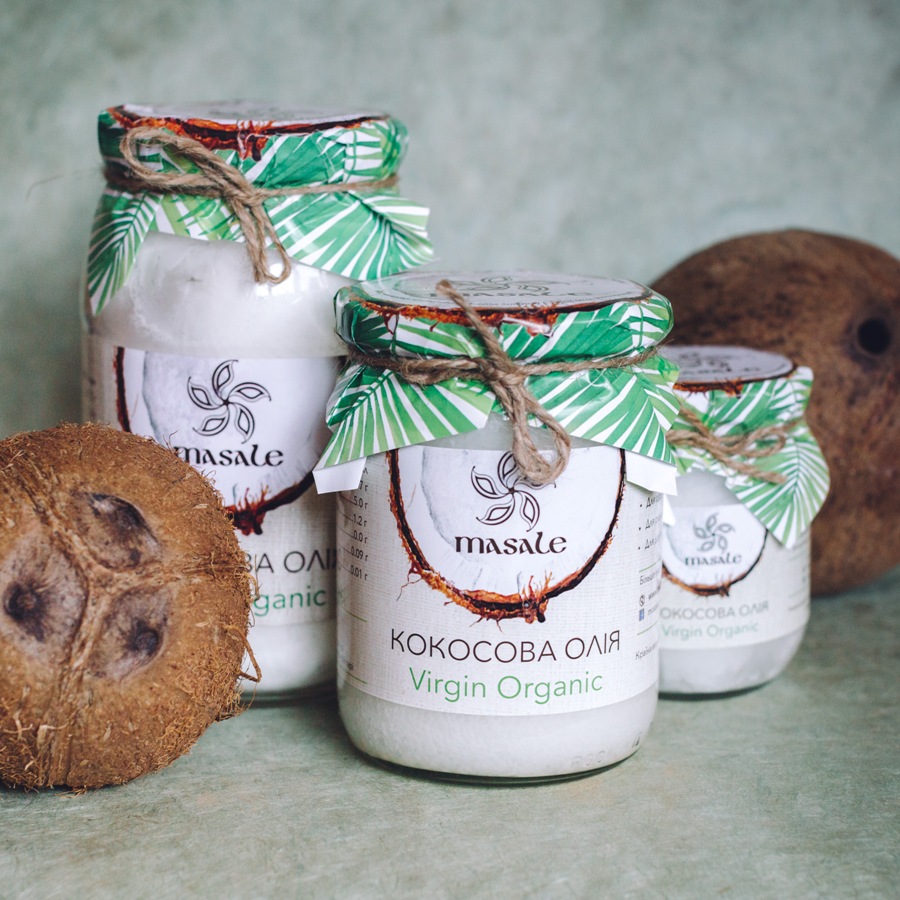
“Organic” coconut oil is often marketed as “natural” when in fact the vast majority of “organic” coconut oil is made from dry copra and in this case would not qualify as “natural oil” in coconut growing countries.
NATURAL COCONUT OIL
There is no international standard for “natural” coconut oil. This term is not used in commerce. In the West, copra oil is the only one well-known coconut oil, so, for example, in America, definitions are used “natural coconut oil” to describe non-hydrogenated or unfractionated oil.
For manufacturers, the term “natural” most often means refined copra coconut oil (RBD). Demanding consumers and connoisseurs prefer stricter definition of “natural” oil and use it to denote minimally processed coconut oil. It’s more compatible with the terminology used in coconut growing countries nuts, where “natural coconut oil” specifically refers to coconut oil, in which the raw material is fresh coconut milk or fresh dried coconut pulp.
HOMEMADE / TRADITIONAL / VILLAGE OIL
Traditional coconut oil is obtained by boiling coconut milk, evaporating the water. As a result, we have solid natural oil, saturated proteins – proteins. Also, to reduce the heating/boiling process that destroy all the beneficial properties of coconut, this oil can also be obtained by fermenting coconut milk for about two days. Obtained oils are heated to remove residual moisture content.
This is “homemade” coconut oil in countries where coconuts grow. It can be made in your own kitchen if you have the opportunity buy coconuts The oil has a very strong taste and aroma of coconut, and has yellowish color. The quality of the oil depends on the way it is made made Most often, such oil is produced in small quantities and sold does not go far beyond the territory of coconut plantations. Similar oils classifications are useful for immediate consumption because the technological process and, in fact, the oil itself is unsuitable for export, given the very short term oil storage and its controversial quality. With the growing export trend of coconut oil, this traditional method has been adapted by combining it with other methods of obtaining and processing oils.
FRACTIONATED COCONUT OIL
Fractionation — gradual controlled cooling of oils and fats without application of chemical modification that allows solid fat to crystallize oil composition.
Coconut oil fractionation is done using graduated temperatures (gradual targeted decrease or increase in temperature regime) to separate triglycerides (see note below) in the composition of the oil under the influence of peak boiling and cooling temperatures
In the process of fractionation, two components are obtained – solid coconut stearin and liquid coconut oil. Oils extracted in this way are used in the food industry. In cosmetic and pharmaceutical industry, fractionated coconut oil is often referred to as medium esters or to the so-called essential coconut fatty acids.
NOTE
Fractional coconut oil is obtained by hydrolysis of raw or refined coconut oil
coconut oil to separate glycerin and fatty acids. Coconuts are fatty
acids are crystallized/distilled further for a particular application and then
re-esterified to the level of triglycerides.
To stop the accumulation of unnecessary smart words, we can say that all this
scientific and technical delusion is aimed at extracting from the original product (in our
in the case of coconut pulp) useful substances related to lipid metabolism, and there are
the main source of nutrition for the cells of the human body.
Triglycerides are the most important source of energy for cells. Plant seeds, liver and adipose tissue contain triglycerides, which are a necessary component of human food. Entry of triglycerides into the body of a person occurs together with food, then they are synthesized in adipose tissue, then the liver and in the intestine. The level of triglycerides in the blood of a person directly depends on age. For the diagnosis of atherosclerosis, as well many other diseases, use the analysis of triglycerides, but his we will probably leave the indicators to other specialists.
HYDROGENATED COCONUT OIL
Hydrogenated coconut oil is a solid refined oil with a stronger texture and resistant to high temperatures for its use in confectionery products Hydrogenation, as a rule, is carried out under high pressure, high temperature with the addition of a nickel catalyst, hydrogen molecules and further processing Such oil is more resistant to oxidation and has a high temperature melting compared to natural oils.
Other names of hydrogenated coconut oil “Coconut 96”, “Coconut 101” and others. Such oil is a modified product, and, on in our opinion, its consumption in food or for cosmetic purposes is dangerous.
VIRGIN OIL DE COCO-CREME
Literally: virgin oil extracted from coconut milk.
The raw material for the production of this oil is fresh coconut milk, squeezed from high-quality fresh coconut pulp (not just copra, and not just fresh coconut core). Obtaining oil of similar quality is achieved with the help of the “innovative process of wet coconut grinding”, which uses cold pressing to obtain an oil emulsion and centrifugation to separate the oil from the water content. No heat or chemical treatment is used at any stage in the entire process (from wringing to cleaning). Virgin Oil de Coco-Crème® is a trademark owned by Quality First International Inc. This is a breakthrough in the oil industry. Both the processing process itself and the resulting oil are pure and natural, can be used as medical food and used in biopharmaceuticals. This is the best coconut oil in the world right now.
